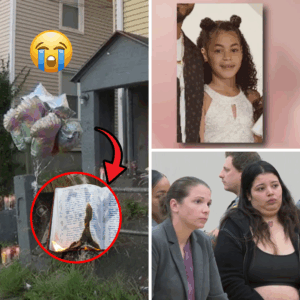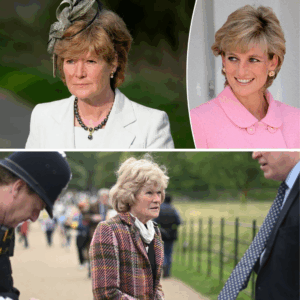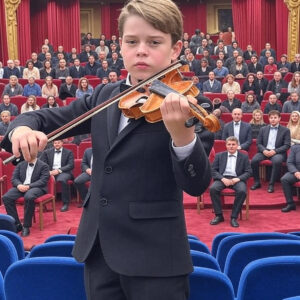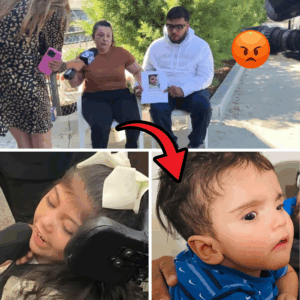In the high-octane world of reality television, where vocal showdowns and dramatic chair turns keep millions glued to their screens, few shows command the loyalty and ritualistic viewing habits of NBC’s The Voice. For 28 seasons, it has been a Monday night staple—a two-hour escape into the raw talent and tearful triumphs of aspiring singers vying for a shot at stardom under the watchful eyes of celebrity coaches. But as Season 28 barrels through its Knockout Rounds, the show’s broadcast schedule has become as unpredictable as a contestant’s high-note risk. On November 3, 2025, NBC issued a terse explanation for yet another abrupt adjustment: episodes slashed to a single hour, shifted to a later prime-time slot, and confined to Mondays only. The move, attributed to network programming conflicts including the return of NBA broadcasts and new scripted series, has sparked widespread confusion among viewers. Worse still, the post-November 10 landscape remains a foggy enigma, with no official word on when—or if—the show will reclaim its dual-night dominance. As fans vent frustration online and ratings teeter amid the uncertainty, The Voice faces a pivotal moment: Can it harmonize its legacy with the realities of a crowded fall slate?
The announcement landed like a sour note just hours before the November 3 episode, catching even die-hard devotees off guard. What was once a reliable rhythm—two-hour extravaganzas on Mondays and Tuesdays during the Blind Auditions and Battles—began fracturing in late October. The culprit? NBC’s bold re-entry into NBA coverage after a two-decade hiatus, commandeering Tuesday nights with high-flying dunks and buzzer-beaters. To compensate, The Voice consolidated into extended Monday marathons, allowing the Battles to wrap by October 27. But that pivot proved short-lived. Starting November 3, the format compressed further: one-hour installments kicking off at 9 p.m. ET/PT, sandwiched between a season premiere of a new sitcom and a returning drama. “We’re making room for more dynamic content across the week,” NBC’s statement read, a diplomatic nod to the broader fall lineup that includes holiday specials, election-night preemptions, and the juggernaut promotion for Wicked: For Good, slated for November 21 theaters. The Knockouts, where coaches pit their artists in head-to-head duels and wield the innovative “Mic Drop” button to spotlight steals, will now unfold in bite-sized bursts every Monday through November 24.
This isn’t the first time The Voice has danced to the network’s tune. Since its 2011 debut, the show has weathered preemptions for everything from the Olympics to Super Bowls, but Season 28’s turbulence feels particularly jarring amid a competitive landscape. Streaming rivals like The Masked Singer and American Idol (now on ABC) lure viewers with more flexible drops on Hulu and Disney+, while The Voice clings to linear TV’s live-voting thrill. The November 3 shift, which aired the first full Knockout episode at the delayed start, drew immediate backlash. Social media lit up with queries: Why truncate the emotional peaks? How will coaches like Reba McEntire and Snoop Dogg convey their tough choices in half the time? One viewer tweeted, “Tuned in late thinking it was the usual 8 p.m. slot—missed the first steal! NBC, give us a break.” Viewership for the episode held steady at around 7.5 million, per early Nielsen estimates, but completion rates dipped as families navigated the later bedtime. Peacock, NBCUniversal’s streaming arm, offers next-day access, but purists argue it dilutes the communal buzz of live elimination drama.
Delving into the mechanics, the Knockouts demand narrative breathing room. Artists select their own songs, coaches pair them for virtual battles, and the victor advances while steals add layers of strategy. This season’s twist—the Mic Drop, allowing a coach to instantly highlight a standout—heightens the stakes, but cramming it into 60 minutes risks rushed montages over meaningful mentorship moments. Coaches have adapted with varying grace: Michael Bublé, the crooner-turned-mentor in his second season, joked during rehearsals about “singing faster to fit it all in,” while Niall Horan, returning for his third go-round, praised the efficiency as a “back-to-basics vibe.” Snoop Dogg, ever the laid-back sage, quipped on Instagram that the shorter format means “less time for my smoke breaks—straight fire all night.” Reba McEntire, the country queen anchoring her fifth season, expressed mild concern over pacing but emphasized the talent’s resilience. “These kids are pros; they’ll shine brighter in the spotlight, no matter the timer,” she told reporters post-taping.
Yet the real discord brews beyond November 10. With Knockouts wrapping on November 24—leaving each coach with just four artists for the Playoffs—the subsequent phase dangles in limbo. NBC’s fall grid prioritizes holiday programming: Thanksgiving specials, Christmas movie marathons, and the December rollout of Wicked‘s sequel buzz. The NBA’s Tuesday stronghold persists, potentially sidelining The Voice until mid-December for the Lives and finale. Rumors swirl of a rumored Tuesday, December 16 finale, but insiders confirm nothing beyond November 10’s confirmed 9 p.m. slot. “We’re evaluating viewer feedback and ratings weekly,” an NBC spokesperson hedged, hinting at flexibility if engagement surges. Playoffs, typically a viewer-voting frenzy, could spill into early December, but without dual nights, the momentum might falter. Historical precedents offer little comfort: Season 26’s COVID disruptions led to a shortened cycle, alienating some fans and dipping ratings by 15%. This time, the uncertainty amplifies anxiety—will the show reclaim Tuesdays post-NBA tip-off, or endure a prolonged Monday monopoly?
Fan reactions paint a portrait of divided devotion. On Reddit’s r/TheVoice, threads explode with speculation: “Is this the death knell for live episodes? Peacock-only for Playoffs?” one top post laments, garnering 500 upvotes. TikTok stitches remix coaches’ reactions to the news, with viral clips of Snoop’s deadpan “Schedule what?” overlayed on confused contestant faces. Positive spins emerge too—shorter episodes suit busy parents, and the later slot targets adult demographics craving post-dinner drama. A Change.org petition for “Restore The Voice’s Full Mondays” has 2,000 signatures, urging NBC to prioritize the show over “recycled sitcoms.” Carson Daly, the evergreen host since Day 1, addressed the uproar in a lighthearted NBC Insider video: “We’ve been through worse—remember the pandemic pivots? Hang tight; the voices are too strong to silence.” His reassurance, laced with behind-the-scenes anecdotes from the Universal Studios lot, underscores the production’s adaptability: remote rehearsals, hybrid tapings, and a rotating crew to dodge burnout.
At its core, The Voice thrives on discovery—the Blind Auditions’ swivel-chair surprises, Battles’ duet fireworks, and now Knockouts’ high-wire steals. Season 28’s roster pulses with potential: standouts like 19-year-old indie folkster Elara Voss, whose haunting cover of Hozier’s “Take Me to Church” earned four chairs, and soulful teen Jax Rivera, whose Snoop-steal via Mic Drop went viral. Advisors like Kelsea Ballerini (for Team Bublé) and Lizzo (for Team Snoop) inject fresh flair, but the truncated airtime threatens to mute their impact. Mega-mentors Zac Brown and Joe Walsh, announced October 20, promise rock-infused wisdom, yet their segments might suffer from editing scissors. Ratings, hovering at 7-8 million weekly, remain robust—outpacing The Masked Singer‘s 4 million—but a prolonged squeeze could erode that edge. NBC’s strategy bets on Peacock synergy: full episodes, coach cams, and interactive polls drive 20% of viewership there, per internal metrics. Yet linear TV’s ritual—family gatherings around the set—fuels the cultural cachet that streaming can’t replicate.
Looking ahead, the uncertainty post-November 10 could reshape The Voice‘s DNA. If Playoffs launch December 1 as teased, expect intensified viewer engagement: app-based voting, social challenges, and cross-promos with Wicked (a nod to the musical’s vocal prowess). Coaches speculate on the finale’s format—live from LA’s Crypto.com Arena, perhaps with guest spots from past winners like Brynn Cartelli or Jordan Smith. Bublé envisions a “mic-drop marathon” to celebrate the changes, while Horan pushes for international duets to globalize appeal. For NBC, this is a calculus of content saturation: the network’s fall haul includes St. Denis Medical revivals and election tie-ins, but The Voice remains a tentpole, generating $100 million in ad revenue annually. A misstep risks viewer churn to cord-cutters, but success could validate the leaner model for future seasons.
As November 4 dawns without a Tuesday episode—marking the first full week of Monday-only viewing—fans brace for more flux. The November 10 installment, locked at 9 p.m., promises Knockout climaxes: Reba’s heart-wrenching pairings, Snoop’s surprise steals. But the horizon blurs: Will December bring a triumphant return to form, or a hybrid stream-first experiment? The Voice has always been about adaptation—singers reinventing classics, coaches pivoting mid-performance. Now, the show itself must harmonize tradition with transition. For viewers, the message is clear: Set those DVRs, download Peacock, and stay tuned. In a season of shortened slots and stretched suspense, one truth endures—the strongest voices cut through the static, schedule be damned.




